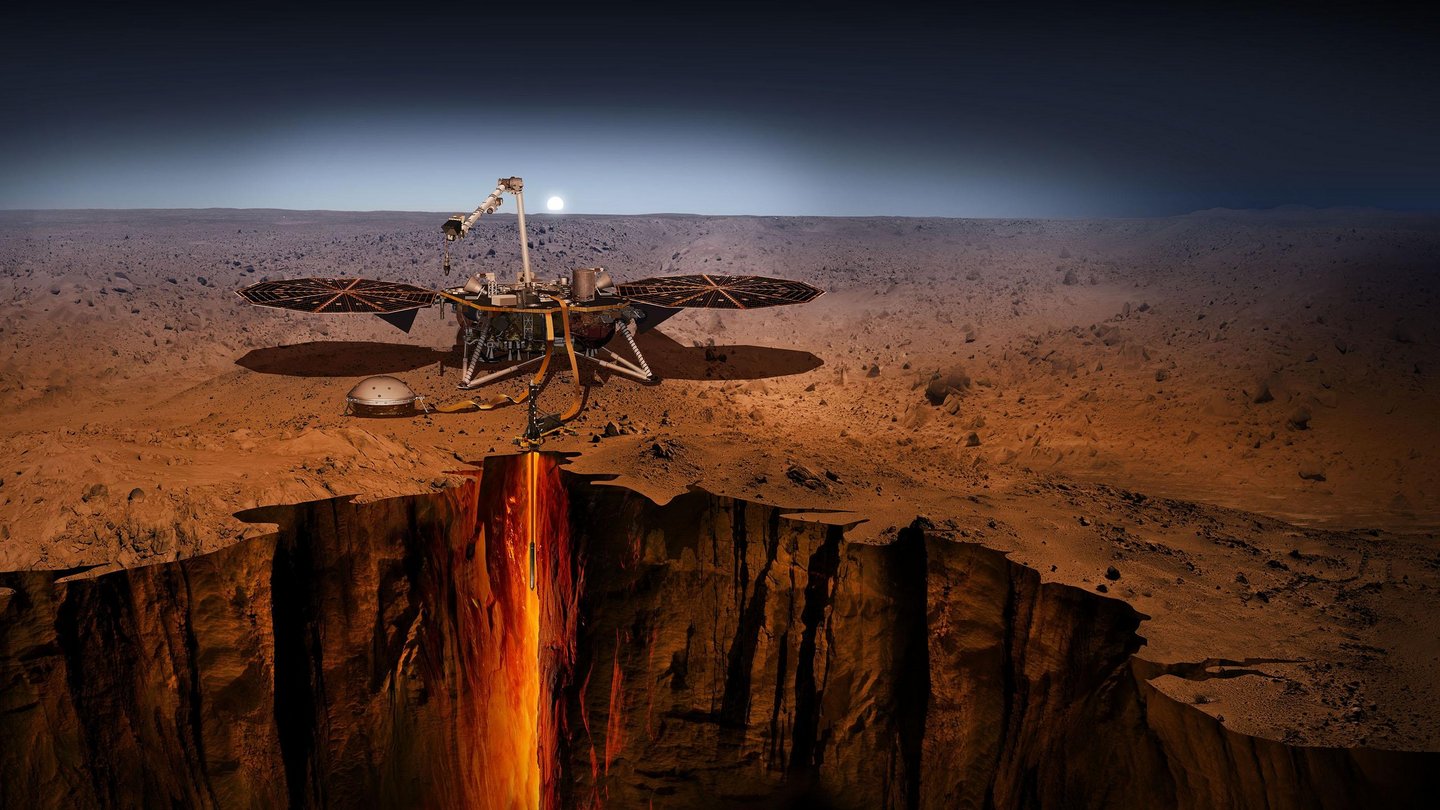The search for water on Mars plays a crucial role in exploring the Red Planet. It has now been shown that there is a rock ten to twenty kilometers below the surface of Mars that contains vast quantities of water. It would be enough for an ocean one to two kilometers deep across the entire planet, the researchers said in the journal Proceedings of the National Academy of Sciences. They came across the water reservoir while evaluating data from NASA’s InSight Mars rover.
“More than three billion years ago, there was a large amount of liquid water on the surface of Mars,” say Vashian Wright of the University of California, San Diego, and his team. This is evident in the numerous traces of rivers, lakes, and oceans in images taken by Mars probes. It’s still unclear where this water remained after Mars lost almost all of its atmosphere. A likely explanation is that much of it seeped into the interior of the Earth.
Mars earthquake data suggests water reservoir
InSight data detects water in the Martian crust
To test this theory, the researchers used data from NASA’s InSight spacecraft from 2018 to 2022. It used a seismometer—a device that measures Earth’s vibrations—to detect vibrations in Martian rocks. Such vibrations are caused by Mars quakes or meteorite impacts, and provide insight into the Red Planet’s interior structure.
The researchers analyzed this data again and compared it with different models of water-bearing rock layers. They concluded that there is likely a water-bearing layer of igneous rock in the Martian crust, between ten and twenty kilometers below the surface.
This water would be difficult to use on future Mars missions, because it is hidden deep within and difficult to extract from pores and cracks in rocks. However, “water is essential to life as we know it,” says Wright’s colleague Michael Manga. Just as microbes can still be found in rocks at great depths on Earth, layers of rock containing water on Mars could also provide good conditions for microbial life. The team therefore sees the layers deep within the Martian soil as a prime target in the search for life on our neighboring planet.

“Social media evangelist. Baconaholic. Devoted reader. Twitter scholar. Avid coffee trailblazer.”







More Stories
Ubisoft wants to release a new Assassin's Creed game every 6 months!
A horror game from former developers at Rockstar
Turtle Beach offers the Stealth Pivot Controller for PC and Xbox